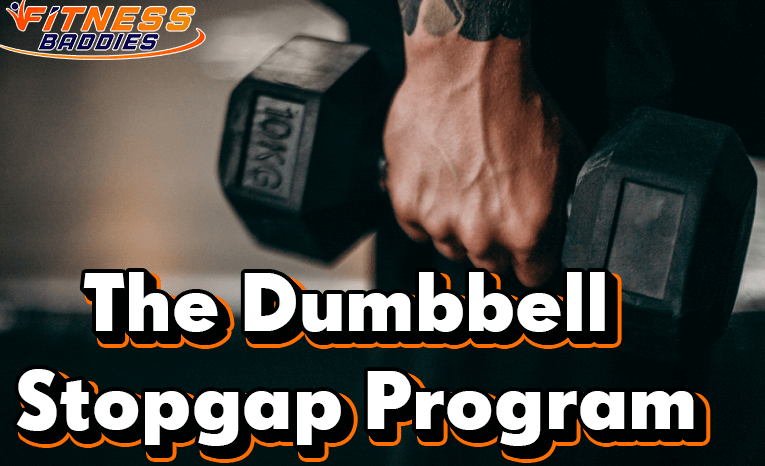Why Protein?
I recently suscribed to Alan Aragon’s monthly research review publication. For anyone in the fitness/nutrition industry its very interesting and reliable reading from a respected source. He breaks down/compares/analyzes recent research articles and also writes on other interesting topics like an interview with a world record-holding competitive eater (who CrossFits and is not fat, hahah). Basically its properly educational…. so just what I need. 😀
*All emphasis on particular words is my own doing*
alanaragon.com
I get a lot of questions about diet, and specifically protein. Why so much protein? Why MORE protein? Why protein at all? When you mention protein to someone as an important part of their diet, their mind flicks to the stigma traditional bodybuilding has given protein. Endless chicken breasts, protein shakes and broscience. And don’t even get me started on vegetarians who complain about body composition (you gotta eat ALOT of beans honey). So without further ado, here are some good reasons why you need to take a serious look at your protein intake, ESPECIALLY (And I can’t stress this enough) if you are looking to lose weight! Losing fat and building lean muscle. The illusive couple! Remember, you can’t out-train a bad diet. All the exercise in the world will only take you so far. Adding an exercise routine without changing your diet will only get you minimal progress in the long run. Taking protein seriously can get rid of a lot of problems people face when deciding to change their diet. In order to lose weight you have to have a caloric deficit. Calories in vs calories out. This poses a problem, cause we all hate watching what we eat…..but if we don’t, we screw up everything else. So listen up and maybe we can simplify why protein is important, why it makes *dieting* easier and why you HAVE to pay attention if you want to lose weight, tighten up (I didn’t say tone) and gain lean muscle (which is really what people mean when they say tone). I am listing these by relevance (though the importance is my own opinion) in case you don’t get to the end of the article 😉 So what great things does protein do for you……
1. Retains muscle mass when in a calorie deficit.
– We all have muscle, some people’s are just bigger. If you didn’t have any muscle you wouldnt be walking around. When losing weight, our body is learning to function on a energy deficit. Energy =’ing food. Less food to run on, means the body has to burn something else to work. We want it to burn fat (obviously), but its not as simple as that. Without getting into it too much, the body doesn’t immediately defer to burning fat. It can start breaking down muscle tissue for energy. Since increasing muscle is a key component to all kinds of good things, we want to avoid this at all costs. In Aragon’s article reviewing the current debates on protein requirements, he examines a study done comparing the current *recommended* levels of protein (Dietary Reference Intake report) at a low .8 grams/kilo with double that at 1.6 g/kg. Two groups of people took either low or higher protein; “The benefits of increasing protein beyond the RDA (recommended dietary allowances) become concretely apparent when an energy deficit (cutting down on calories) is imposed, and these benefits are enhanced with the inclusion of training…..Only the training group consuming double the RDA preserved lean mass (MUSCLE).”
It continues, “Collectively, this body of research suggests that for individuals who are not already well-trained or possessing a high level of athletic conditioning (THATS MOST OF US), consuming protein at approximately 1.5 g/kg is the MINIMUM amount required to prevent loss of lean mass in an energy deficit – as long as a resistance training is in place (EXERCISE). Without the training, preventing lean losses would DRIVE UP the protein requirement.”
Are we understanding the significance here?
Summary: If you are trying to lose fat by reducing calories and exercising, eating a minimum of 1.5 g/kg (we’ll go over how to find that out) of your bodyweight is essential for keeping the muscle you do have (they didn’t even go into muscle GROWTH). If you are not exercising AND still dieting, this protein intake becomes even MORE important. Muscle is what keeps your metabolism up. The more you have, the better it is. You can’t hope to keep fat off permanently without keeping and adding lean muscle mass. And for that, protein is needed. Increasing your lean muscle mass (anabolism) leads to a higher metabolism. And everyone always hears about “fast” metabolisms and the wonders of leanness they produce. haha. You too can have a good metabolism! Eat your steak and do your pushups. And if you don’t get around to exercising too much and have a fairly sedentary job (NO running after kids doesn’t count) than you REALLY better err on the side of high protein or your frustration will continue.
2. The wonder of thermogenesis and satiety.
– Your body burns energy in order to process and use food. The great thing about protein is that it uses up A LOT more energy than fat or carbohydrates. Eating protein burns more calories! And if we are reducing calories to begin with, eating more protein makes sense. From Aragon’s article “Protein choices targeting thermogenesis and metabolism” he says that “Dietary proteins stimulate thermogenesis and satiety more than does carbohydrate or fat.”
From; The Effects of High Protein Diets on Thermogenesis, Satiety and Weight Loss; A Critical Review by Thomas Halton & Frank B.
“There is convincing evidence that a higher protein intake increases thermogenesis and satiety compared to diets of lower protein content. The weight of evidence also suggests that high protein meals lead to a reduced subsequent energy intake.”
Summary: Protein-containing meals stimulate more energy expenditure and keep you satieted longer so that you eat less and are less hungry altogether.
3. You don’t have to be too picky about timing!
– The great thing about protein intake is that what really matters in the end (and has been proven in research) is that at the end of the day TOTAL protein intake is more important than when you ate it. Some people can split hairs about timing, pre vs post training etc etc. But that is not as important and has little statistical weight so far, when compared to total macros for the day. Some people stress about getting in their protein and carbs immediately after training, but Aragon’s analysis of the research reports that “this window of opportunity (the one where what you eat will affect muscle growth the most, thought to be immediately after training for a certain time period) is a non-issue in most cases where daily macronutrient targets are hit”. One less thing to worry about. 😀 The exception he does make is to high-level athletes that need to replenish glycogen asap. But this doesn’t apply to most people. Ideally eating most of your carbs after you work out is a good idea, but protein is ALWAYS a good idea, no matter when.
4. But what ARE good sources of protein?
– Calm down, this is not going to be a paleo/primal rant or such. Actually Alan has an article “Why broscience works, part 1” which gives a short hilarious look at diet trends and what people have considered “clean” eating in the 80’s, 90’s and 2000’s. I wanted to post some thoughts about it, but another time. So a slab of grassfed beef over two weiner dogs is the idea because you will just get more bang for your buck. Or greek yogurt over low-fat fruity gloop. Get the idea? These include;
– Raw animal protein (beef, chicken, turkey, pork, lamb, bison, ostrich etc)
– Dairy products (cottage cheese, milk, cheese, soft cheeses, yogurt)
– Seafood (fish, oysters, lobsters, crabs etc)
– Protein Powders (whey isolate and casein)
– Eggs
– Processed animal protein (bacon, ham, deli meats, hotdogs, sausages)
Lyle McDonald has a great breakdown of optimal protein sources here (its a series):
What Are Good Sources of Protein? – Introduction
A lot of other foods have protein as well, just in differing amounts, and if you start tracking your food at a website like
fitday.com
or a free ap like myfitnesspal
you can see how much protein is in other foods like nuts, grains, rice etc.
Eating well can scare some people in regards to cost and because they think they can’t afford *good* sources, they don’t start increasing their protein at all. They have the excuse to not do anything. While I am all for good sources of protein, your high-fiber, multigrain, lowfat diet that’s keeping you squishy and mushy is not really better than a higher protein diet from potentially inferior sources. It doesn’t have to be that complicated or frustrating. Most whole unprocessed foods are fine to eat. Whether you want to remove grains is up to you. Whether you believe beef is superior to chicken is also up to you and you will always find varying opinions in the end. Aragon says “Most folks equate suffering and complexity with success and pleasure and simplicity with failure. Can people succeed on pleasure AND simplicity? Yes, but this is often too foreign a concept for many to grasp, its almost as if most people are too deeply indoctrinated into the no pain, no gain mentality.” Some people get a kick out of fiddling with their diet obsessively. Some make it a religion (cue Paleos), but that doesn’t mean you can’t have success doing the simple basic stuff. Pick whole foods, cook your foods, eat your food. Before you “emotionally latch on to a newly-discovered dietary “truth””, take some basic stock of your everyday regular stuff. How much protein am I getting? What are my basic caloric needs?
Once again, many thanks to Alan Aragon. I feel dwarfed sometimes by the vast amount of knowledge and experience out there already that, unfortunately, is often lost in the craziness that is the health/fitness industry. What’s worse is that most average people looking for answers only get as far as what’s most marketed, advertised or endorsed by the FDA or medical community which leads so many people astray. Since few people get around to getting their hands on the real scientific based stuff that works and is applicable to YOU (not just ultra-endurance athletes in a lab); I m just passing it on down.
Eat your cow, boy.


